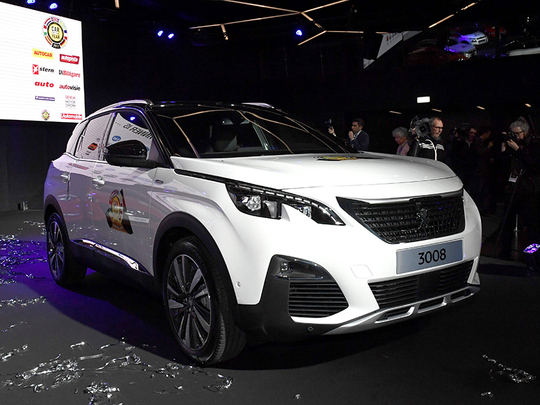
Dubai
The French automaker PSA, which owns Peugeot and Citroen, is aiming for a complete reset of its Gulf operations after years of relative neglect, according to a board member. The shift in strategy comes as part of PSA’s push to generate volumes of 1 million cars within the next 10 years from the Middle East and Africa.
It is also in keeping with the manufacturer’s aggressive growth stance in recent years and capped by the announcement last week it was acquiring the Opel and Vauxhall brands from General Motors.
“We were never serious enough in this region and [senior] staff used to travel down once a year,” said Jean Christophe Quemard, who is Executive Vice-President for the Middle East and Africa. “That was a real mistake and explains the numbers we have been having until now.”
The new emphasis sees PSA open a regional office in Dubai — its first in the GCC — and bring in a slew of new models that are to be extensively tested in the region before their actual launch. In the coming weeks and months, there will be the introduction of its SUVs, bearing the 3008 and 5008 stamp. (Until last year, regional launches were done without any prior climate and environment testing.) “There are Japanese makes that you see everywhere in these markets,” said Quemard, at the opening of the office in Dubai Airport Free Zone. “But we have done research regionally that buyers want a change from the monopolistic brands and try something new.”
The carmaker intends to take a “step by step” approach in developing market share. The focus initially will be around the Peugeot models — with price tags at the premium end of the mainstream category — and then with Citroen, more mass market, and then the high-end DS range.
“We will come with models suited for this region … some of our products in the past have not been up to GCC requirements,” said Cedric Zayoun, Managing Director responsible for the Gulf markets. “We are being honest about it.”
The new strategy will see the manufacturer support dealers with 5-year manufacturer warranty on all vehicles sold in the region. The introduction of the SUVs — the 3008 has won quite a few accolades in Europe — should find a ready response in the region, where in recent years SUVs and crossovers have accounted for 50 per cent of domestic sales.
PSA has been walking the talk in the last three years, during which time it transitioned from a manufacturer losing billions into a highly profitable operator. In 2016, it had a profit margin of 6 per cent as against the earlier projection for 4 per cent. Car volumes were 3.15 million last year, a bump from the 2.97 million in 2015. Sales in Europe were strong as was the case in Iran, helped by the lifting of sanctions.
According to Quemard, the time has come to set the course right in the Gulf. “We are aiming for nothing less than 5 per cent in 10 years — frankly, that is the share one needs to have to get a decent exposure. Most of what we ship here are built in Europe. Going forward, there will be a more global supply strategy. Our ambition is that by 2025 70 per cent of what is sold in the region is made here.” (There will be a new plant opening in Morocco shortly. As per its plan, Middle East and Africa should account for 1 million PSA branded vehicles from last year’s 337,000 units.) The board member said it was too early to talk about what Opel’s acquisition will mean for PSA’s regional aspirations. PSA is paying 2.2 billion euros for the GM owned brand assets.












